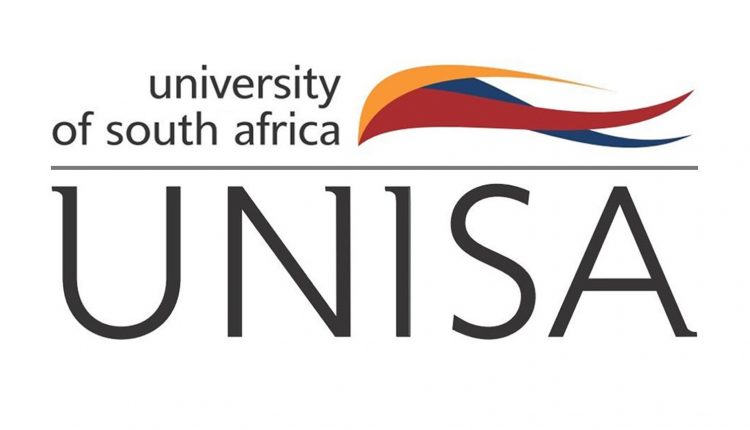University of South Africa: Engaged scholarship theory brought to practice at yet another successful Unisa symposium
In September 2022 Unisa’s Western Cape Region successfully hosted its 8th Annual Academic Development Symposium. This year’s symposium, entitled “Higher education for social justice and development: How engaged scholarship transforms academic institutions”, was jointly hosted by the Division of Community Engagement and Outreach, and the Tirisano Project (College of Human Sciences). Anchored for the first time as a hybrid event, the symposium hosted delegates from across diverse institutions.
Engaged scholarship has, for many years, been a highly contested yet somewhat obscure academic pillar in the higher education domain. This year, the symposium made way for a trialogue series, as academics, practitioners, activists and communities gathered to interrogate the interplay between academic output, and the impact and sustainability of academically funded projects.
Prof Zodwa Motsa Madikane, Vice-Principal: Teaching, Learning, Community Engagement and Student Support, delivered the opening address, in which she highlighted the growing need for engaged scholarship in both the traditional and distance learning spheres of educational offerings. In her address, she emphasised the importance of engaged teaching and learning, research and scholastic presence, for creating a sustainable culture of continuous community engagement and dialogue.
In her keynote address, Dr Genevieve James, Deputy Director: Community Engagement, touched on rising inequalities across Africa, and the increasing alienation of communities as they continue to face daily challenges in accessing quality education, healthcare, housing and social justice. James emphasised the interrelationship between intellectual arbitrage and social consciousness in transforming the practice and presence of higher education to attain social justice.
Some of the attendees and organisers
A panel of academics, featuring Leon Roets (Project Leader, Tirisano Centre), Prof Ignatius Gous (College of Human Sciences), Tommy Mabala and Mokopane Marakalala (College of Law), focused on the conscientious and intellectual efforts academics make to establish workable connections aimed at fostering scholastic engagement, advancing scholarship and representing practitioner-driven voices.
The second day of the symposium was opened by Prof Moloko Sepota, Acting Deputy Registrar, Student Administration and System Integration of Unisa, who addressed the importance of change in the higher education landscape, and the role of conversations in driving the community engagement and engaged scholarship agenda.
Ms Nicole Alexander, Director of the Pride Shelter Trust, addressing delegates
In her keynote address on Day 2, Dr Shahieda Jansen, Acting Regional Director of the Western Cape Region, focused on the cognitive, conative and affective representations of the self in the ambit of both social psychology and community involvement. Key lessons gleaned from Jansen’s presentation included the importance of acknowledging the complexities of communities, and the fact that identity is neither static, nor merely framed within traditional and clinical confines.
The voices of communities were led by Catherine Makwakwa (Lefika Orphan Care and the Unisa Gauteng Region), Advocate Tarisai Mchuchu-MacMillan (MOSAIC), Dr Willie Cilliers (George Chamber of Commerce), Charlene Blacker (A Reaching Hand) and Nicole Alexander (Pride Shelter Trust). These business entities and non-profit organisations presented strong and scientifically informed overviews of their services, experiences, impact and quest to find sustainable ways of maintaining their societal relevance. Presentations focused on entrepreneurial skills, human and gender rights advocacy, orphan care and support, and social equality.
Adele Blacker, a Unisa regional academic coordinator based in the Southern Cape, shared her experience of the strengths and opportunities that exist in rural and semi-urban communities. Blacker premised her presentation on the challenge of whether community engagement, and the success thereof, can guarantee project/programme sustainability. In her view, societal motivation and interest, and action-oriented learning research, can facilitate community buy-in.
Advocate Tarisai Mchuchu-MacMillan, representing Mosaic, an organisation empowering women and girl survivors of domestic violence, addressing the delegates
These presentations highlighted that there is significant interest in collaborations between community-based organisations and higher education institutions. Local and international collaboration requires stakeholders to expand and maintain connections more explicitly, especially in instances where transformation is needed.
This symposium was rated positively by the participants for the calibre of the information shared. “This year’s symposium was different,” an online participant observed. “This event has actually made me reflect on my own understanding of what social justice is about, and how I can contribute to providing access to justice for communities.”
For the Western Cape Region, this was a first in terms of collectively unpacking engaged scholarship with diverse audiences to yield rigour and confirm the relevance of this approach in meeting the immediate needs of communities. This point was echoed in the view of the organiser, John Abrahams, who reflected that “engaged scholarship should not be seen nor grouped as an isolated pillar in the academe, but should be critically interrogated, and academically and professionally packaged to yield meaningful ways that can add value to ourselves and our communities”.

